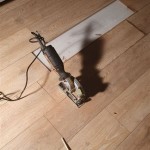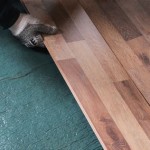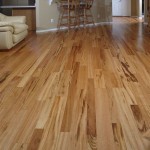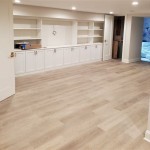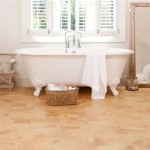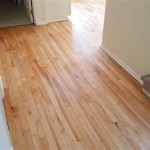Engineered Wood Flooring: An In-Depth Exploration of Pros and Cons
Engineered wood flooring has emerged as a popular choice in home decor, blending the aesthetic appeal of hardwood with the durability of engineered materials. Before making a decision, it's crucial to understand the advantages and disadvantages of this flooring option to ensure it aligns with your specific needs and preferences.
Pros of Engineered Wood Flooring:
- Natural Beauty and Versatility: Engineered wood flooring seamlessly mimics the rich textures and grain patterns of hardwood, offering a natural and elegant look. Its wide variety of colors, stains, and finishes allows for customization to match any interior design.
- Durability and Strength: Engineered wood flooring is constructed with multiple layers, including a hardwood veneer on top of a plywood or HDF (High-Density Fiberboard) core. This multi-layered structure makes it highly resistant to wear, dents, and moisture, ensuring longevity and durability.
- Stability and Resistance to Expansion/Contraction: Unlike traditional hardwood flooring, engineered wood is designed with cross-directional layers that minimize expansion and contraction. This feature makes it ideal for stability in areas with fluctuating temperatures and humidity levels.
- Easy Installation: Engineered wood flooring is typically installed using a click-lock or tongue-and-groove system, making it an easy and convenient DIY project for homeowners. It can be installed over most existing subfloors, including concrete, plywood, and existing flooring.
- Versatility in Application: Engineered wood flooring can be applied in various rooms, including high-traffic areas, moisture-prone spaces (such as kitchens and bathrooms), and even basements. Its versatility makes it a great choice for homes with varying room requirements.
Cons of Engineered Wood Flooring:
- Higher Cost: Engineered wood flooring is generally more expensive than traditional hardwood, vinyl, or laminate flooring. The cost can vary depending on the wood species, construction, and finish.
- Potential for Scratches: While engineered wood flooring is durable, it can still be prone to scratches if not properly cared for. Regular maintenance and protective measures can help extend its lifespan and minimize scratches.
- Limited Refinishing Options: Unlike traditional hardwood, engineered wood has a thin veneer layer that limits the number of times it can be refinished. Once the top layer is worn, it may not be possible to refinish the flooring.
- Moisture Sensitivity: Although engineered wood is more moisture-resistant than traditional hardwood, it can still be damaged if exposed to excessive moisture for prolonged periods. Proper installation and maintenance are crucial to prevent moisture-related issues.
- Environmental Impact: Engineered wood flooring may have a lower environmental impact than traditional hardwood due to its use of sustainably harvested wood and recycled materials. However, some concerns remain regarding the use of adhesives and other chemicals in its manufacturing process.
Conclusion:
Engineered wood flooring offers a combination of beauty, durability, and versatility that makes it an attractive choice for homeowners. Its advantages, such as natural aesthetics, strength, and easy installation, outweigh its potential drawbacks for many. However, it's important to consider the cost, maintenance requirements, and potential limitations before making a decision.
Ultimately, the suitability of engineered wood flooring depends on your individual needs, preferences, and budget. By carefully weighing the pros and cons and consulting with flooring professionals, you can determine if engineered wood flooring is the right choice for your home.

Engineered Hardwood Vs Laminate

Solid Vs Engineered Hardwood Which Is Better

Engineered Wood Flooring Homeowner Pros Cons

Laminate Flooring Vs Engineered Hardwood Pros And Cons

Engineered Hardwood Flooring Pros And Cons Floors Blvd

Pros Cons Of Engineered Hardwood Flooring Reno Super

Engineered Wood Flooring Pros And Cons Forbes Home

Engineered Timber Flooring Pros And Cons Versace Timbers

Choosing 2mm Engineered Wood Flooring Pros And Cons Beyond Blog

Hardwood Vs Engineered Wood Flooring Which Is Best For You Forbes Home
See Also

